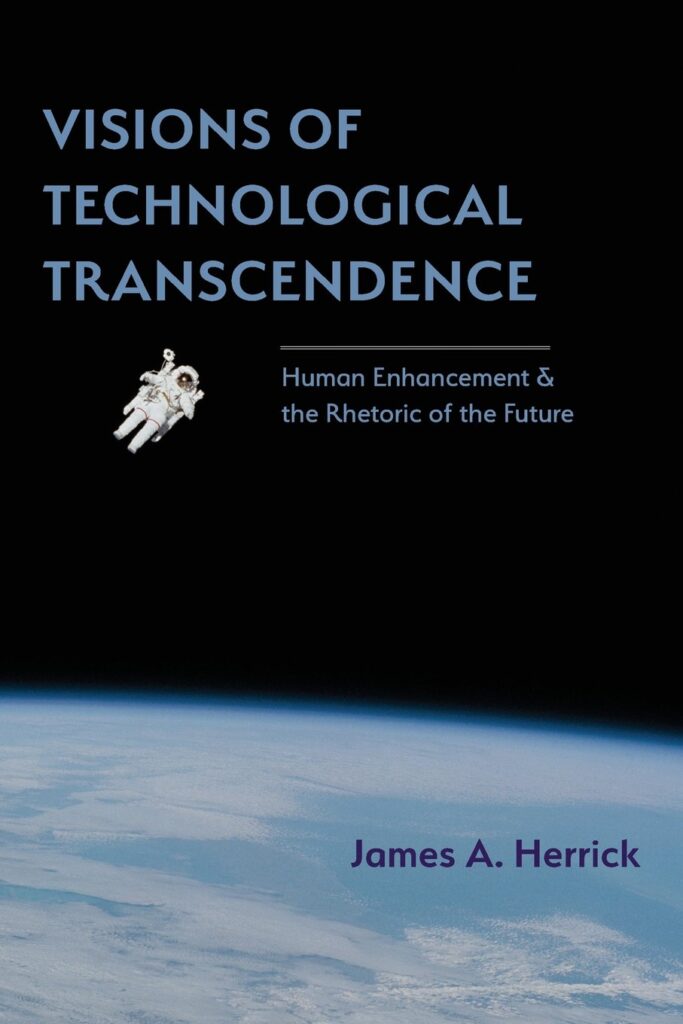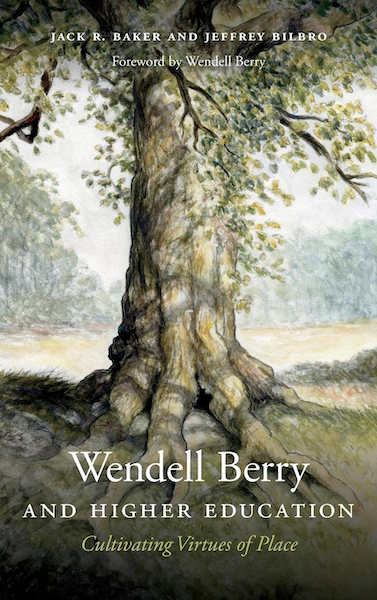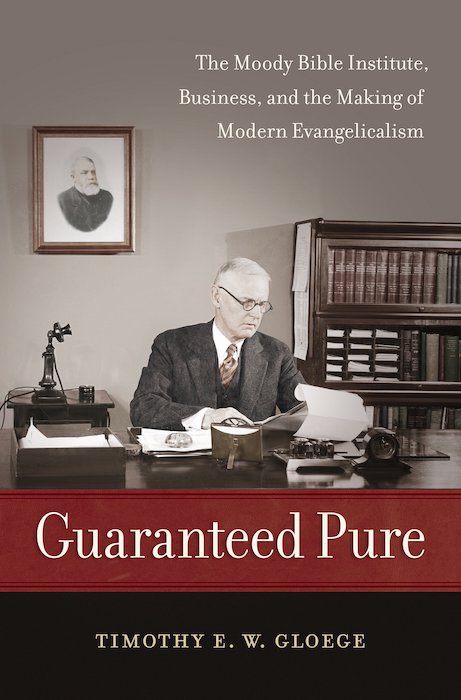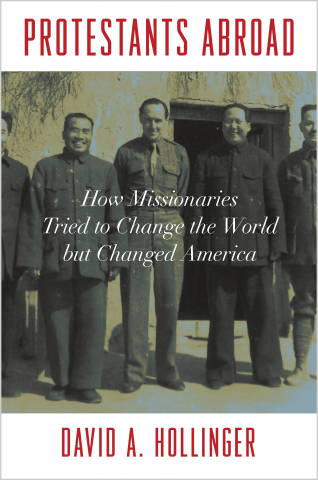PREVIEW
The player for this Journal volume is only available to current members or listeners with a legacy account. If you have an active membership, log in here. If you’d like to become a member — with access to all our audio programs — sign up here.
Guests heard on Volume 140
Matthew Rubery, author of The Untold Story of the Talking Book, on the history of the “talking book,” and on how reading aloud differs from listening to it being read
James A. Herrick, author of Visions of Technological Transcendence: Human Enhancement and the Rhetoric of the Future, on the “post-human” aspirations of the transhumanist movement, and how its plausibility is established by stories
Jack Baker and Jeffrey Bilbro, authors of Wendell Berry and Higher Education: Cultivating Virtues of Place, on lessons that universities should heed from Wendell Berry’s essays, poetry, and fiction about commitment to living in a place
Timothy Gloege, author of Guaranteed Pure: The Moody Bible Institute, Business, and the Making of Modern Evangelicalism, on the influence of business methods on twentieth-century evangelicalism through the shaping of Moody Bible Institute
David Hollinger, author of Protestants Abroad: How Missionaries Tried to Change the World but Changed America, on how the sons and daughters of mid-twentieth-century missionaries to Asia came back to the U.S. and influenced government, journalism, and the academy
Barrett Fisher on the themes of the challenge of faithfulness as presented in Shusaku Endo’s Silence and in Martin Scorsese’s film version
Related reading and listening
- Manners and morals — FROM VOL. 19 Film and literary critic Alan Jacobs discusses how modern audiences relate to the manners and morals portrayed in Jane Austen films. (16 minutes)
- The moral complicity of movie audiences — Film critic David Thomson explains why Alfred Hitchcock’s film Psycho achieves a kind of unique synergy with American culture, raising unsettling questions about alienation and identity. (33 minutes)
- A poet’s relationship to time — FROM VOL. 57 Poet Wilmer Mills (1969–2011) discusses how his agricultural and cross-cultural childhood in Brazil shaped his imagination and his relationship with modernity. (11 minutes)
- The importance of literary reading — FROM VOL. 70 Dana Gioia discusses the important role literary reading plays in society and the 2004 publication from the NEA about such reading. (13 minutes)
- Ideas made incarnate — In this lecture, Karen Swallow Prior examines the power of great literature to shape lives, nourish imaginations, and develop a vision of the good life. (43 minutes)
- Gratitude and stewardship as political postures — FROM VOL. 118 Mark Mitchell explores the consequences of four concepts that are sadly missing from most political debates today: creatureliness, gratitude, human scale, and place. (18 minutes)
- An embedded life — Following a move from one state to another, Gilbert Meilaender explores the tension between being simultaneously a sojourner and a body located in place and time. (30 minutes)
- Cultures of chance, cultures of control — Historian Jackson Lears explains how gambling springs from a longing for an experience of “unbidden beneficence,” a repudiation of the idea of control that marks modernity. (49 minutes)
- Impact of “infotainment” on community — Neil Gabler and C. John Sommerville discuss how the mentalities conveyed by our experience with communications media work against the nurturing of community. (36 minutes)
- On the Degeneration of Attentiveness — Critic Nicholas Carr talks about how technology-driven trends affect our cultural and personal lives. (56 minutes)
- Books worthy of a lifetime of encounters — FROM VOL. 69 Daniel Ritchie discusses why great books programs survive mainly in Christian institutions while declining in secular ones. (13 minutes)
- Mars Hill Audio Journal, Volume 162 — FEATURED GUESTS: Mark Noll, R. Jared Staudt, Paul Weston, William C. Hackett, Hans Boersma, and David Paul Baird
- Early evangelical response to C. S. Lewis — Historian Mark Noll discusses the reasons why American evangelicals were initially slow to warm to Lewis. (15 minutes)
- The Gospel as the foundation of dialogue — FROM VOL. 83 Professor Paul Weston discusses theologian Lesslie Newbigin’s time in India and how it influenced his thought and work. (17 minutes)
- Personhood, limits, and academic vocation — FROM VOL. 39 Marion Montgomery (1934–2002) offers a deep critique of the relationship of the academy to its community in an effort to diagnose how higher education has lost its way. (13 minutes)
- What higher education forgot — FROM VOL. 84 Harry L. Lewis discusses higher education’s amnesia about its purposes, and how that shortchanges students. (19 minutes)
- A Christian philosophy of integrated education — FROM VOL. 61 Michael L. Peterson discusses how Christianity could inform society’s understandings of education and human nature. (8 minutes)
- Education for human flourishing — Co-authors Paul Spears and Steven Loomis argue that Christians should foster education that does justice to humans in our fullness of being. (23 minutes)
- The social irrelevance of secular higher education — FROM VOL. 85 Professor C. John Sommerville describes the increasingly marginal influence of universities in our society, and why they seem to be of no substantive relevance to people outside the school. (13 minutes)
- The history of Christianity and higher education — FROM VOL. 50 In tracing Christianity’s relationship to the academy, Arthur F. Holmes points to Augustine as one of the first to embrace higher learning, believing God’s ordered creation to be open to study by the rational mind of man. (9 minutes)
- “Muscular Christianity” and sport as language — In light of this summer’s Olympic Games, we present two sports-related archive interviews: Clifford Putney on Protestant emphasis on fitness at the turn of the 19th century; and Andrei S. Markovits on Americans and soccer. (23 minutes)
- Creation’s goodness and human faithfulness — J. Matthew Bonzo and Michael R. Stevens on Wendell Berry’s understanding of how Creation is a gift with certain givenness
- Productivity or thrift? — Wendell Berry contrasts an economy of productivity (which invites extravagance) and an economy of thrift (which takes care of things)
- The destructive logic of short-term thinking — Wendell Berry on the perils of ignoring the nature of Nature
- Universities as the hosts of reciprocating speech — Robert Jenson on how the Christian understanding of Truth in a personal Word shaped the Western university
- Fixed certainties, fixed mysteries — FROM VOL. 42Science journalist John Horgan, author of The Undiscovered Mind: How the Human Brain Defies Replication, Medication, and Explanation, discusses the limits of neuroscience. (13 minutes)
- Herrick, James A. — FROM THE GUEST PAGE: James A. Herrick was for twenty years the Guy Vander Jagt Professor of Communication at Hope College in Holland, MI, where he taught from 1984 to 2020.
- Bilbro, Jeffrey — FROM THE GUEST PAGE: Jeffrey Bilbro is Associate Professor of English at Grove City College and Editor-in-Chief at the Front Porch Republic.
- Ingmar Bergman and God — Gene D. Phillips, S.J. on the shape of Ingmar Bergman’s religious pondering
- Postmodern manners and morals — Mary P. Nichols on the films of Whit Stillman as comedies of manners
- Movies and terminal irony — Two archive interviews explore how the films of Ingmar Bergman and Whit Stillman sustain a degree of moral depth absent in most movies. (30 minutes)
- Baker, Jack R. — FROM THE GUEST PAGE: Jack R. Baker is Principal, Internal Communications at a fintech company. He is an expert writer and communicator whose career has spanned education, ecommerce, non-profits, and fintech.
- The loss of hierarchy and humility in the academy — In interviews from 1999, literature professors Alvin Kernan and Marion Montgomery discuss how culture of the academy — its hyper-democratic posture and its loathing of limits — derails the pursuit of truth. (25 minutes)
- Fisher, Barrett — FROM THE GUEST PAGE: Dr. Barrett Fisher II is Dean of Academic Programs for the College of Arts and Sciences in Bethel University (St. Paul, Minnesota), where he served as Professor of English and department chair, as well as faculty development coordinator, before moving into full-time administration.
- The de(con)struction of the humanities (and of truth) — Historian Gertrude Himmelfarb on the skeptical tendencies of the postmodern academy
- Blest be the ties of language that bind us — Marion Montgomery on the precious gift of words
- The academy’s deconstruction of both person and community — Marion Montgomery on cultivating “a deportment of intellect governed by a continuing concern for the truth of things”
- From university to multiversity to demoversity — Alvin Kernan on tectonic shifts in higher education since the 1960s
- Rubery, Matthew — FROM THE GUEST PAGE: Matthew Rubery is Professor of Modern Literature, Queen Mary University of London.
- Scholarship’s silos and the eclipse of meaning — Paul Tyson on how the modern academy avoids engagement with Reality
- Distributist & sustainable economics — Two interview from 2010: John C. Médaille summarizes how distributist economics differs from both capitalism and socialism. Then Herman Daly discusses the danger of economic theory abstracted from the actual stuff of Creation. (44 minutes)
- An outrageous idea? — In the late 1990s, George M. Marsden and James Tunstead Burtchaell both wrote books examining the claim that it was far-fetched even to imagine that scholarly work could be an expression of Christian claims about reality. (25 minutes)
- Christian scholars and the secularized academy — Mark Noll on why Christian intellectual vitality requires a vision for the universality of Christian truth
- Where mortals dwell — FROM VOL. 113Theologian Craig Bartholomew provides a biblically rich critique of the contemporary “crisis of place,” a disorienting condition caused by neglect of the meaning of our embodiment. (21 minutes)
- The dispiriting consequences of the commodification of knowledge — Thomas Pfau asks why so many students in universities are regarded only as consumers, who expect a good return on their investment. He also muses on some strategies for “re-spiritualizing” education. (30 minutes)
- Place and imagination — Matthew Stewart on Wallace Stegner’s moral laboratories
- Parsing the intellectual vocation — Norman Klassen and Jens Zimmermann demonstrate that some form of humanism has always been central to the purposes of higher education, and insist that the recovery of a rich, Christocentric Christian humanism is the only way for the university to recover a coherent purpose. (39 minutes)
- Mars Hill Audio Journal, Volume 153 — FEATURED GUESTS:
Charles C. Camosy, O. Carter Snead, Matt Feeney, Margarita A. Mooney, Louis Markos, and Alan Jacobs
- Mars Hill Audio Journal, Volume 152 — FEATURED GUESTS:
Elisabeth Lasch-Quinn, Jeffrey Bilbro, Zena Hitz, James L. Nolan, Jr., Bishop Robert Barron, and Jason Blakely
- Words as fulcrums — Wendell Berry on the mediating responsibilities of poets
Tags:
Baker, JackBerry, WendellBilbro, JeffreyBooksEndo, ShusakuEvangelicalism—HistoryFilmFisher, BarrettGloege, TimothyHerrick, James A.Higher educationHollinger, DavidMissionariesPlaceProtestantismReadingRubery, MatthewScorsese, MartinTranshumanism





